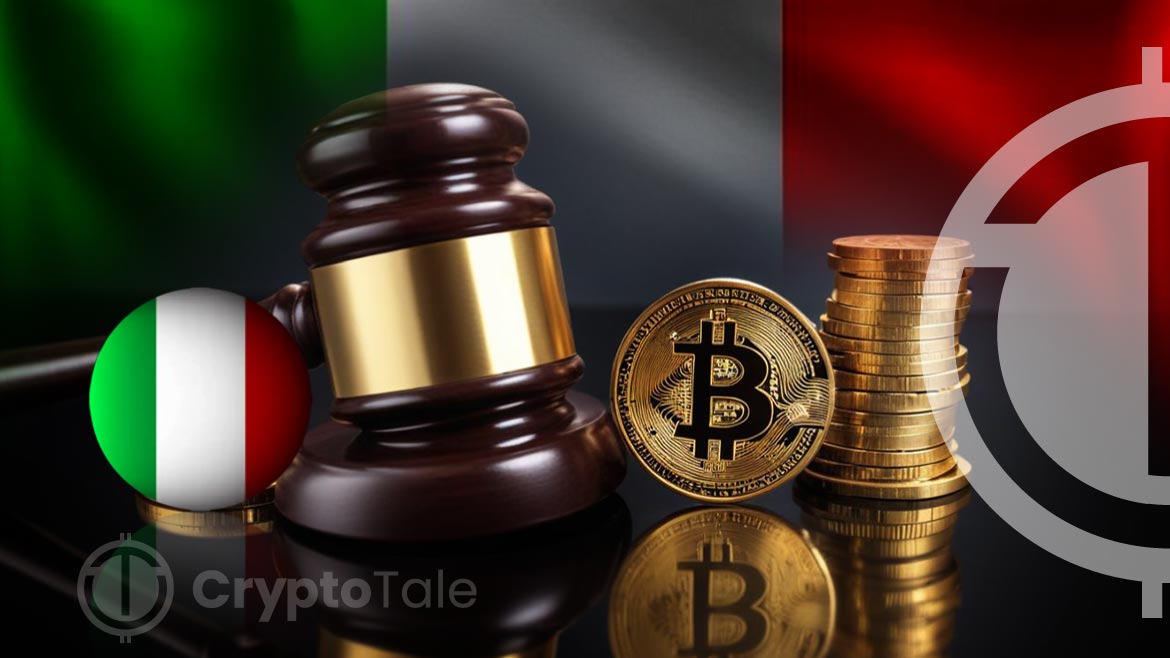
Italy will enforce rigorous new measures to tighten oversight on crypto assets to enhance market integrity and financial stability. A recent report states these measures include imposing significant fines on individuals engaging in market manipulation and other illicit activities related to cryptocurrencies. The cabinet is expected to ratify this decree later the same day.
The legislation mandates hefty penalties ranging from 5,000 to 5 million euros ($5,400-$5.4 million) for insider trading, unlawful disclosure of information, and market manipulation. This initiative aligns with the European Union’s regulatory framework established last year, showcasing Italy’s dedication to maintaining a secure and orderly financial system.
According to the new rules, the Bank of Italy and Consob, the Financial Market Authority in Italy, will mainly supervise cryptocurrency-related activities. These institutions are accountable for financial integrity and the proper functioning of markets. This effort emerges as global anxiety grows over unstable macroeconomic and financial volatility spurred by cryptocurrencies that possess no intrinsic value.
Italy’s actions to control the cryptocurrency market reveal the process of growing regulation in the cryptocurrency market. By imposing severe penalties and improving monitoring mechanisms, Italian officials seek to increase the effectiveness of their regulation.
UwU Lend Offers $5M Bounty Following $3.66M Exploit Transferred to Tornado CashThe international financial sphere still has not reconciled with the active development of digital currencies while trying to address applicable challenges and opportunities. Italy’s upcoming decree is a step closer to providing a grey area regulation, seeking to both regulate market malpractice and protect the financial sector from fraud.
For Italy, its plan to enforce these new standards and its position on cryptocurrencies represents a turning point. These penalties and enhanced supervision make it clear that the Italian government wants to deal with financial crimes and ensure that the economy is stable and safe. The following approval of this decree further shows that Italy is among the participating countries that are responding to these new challenges proactively.














